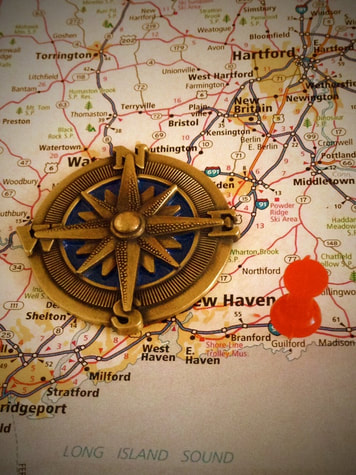Coaching: Frequently Asked Questions
Why Should I Think About Doing Coaching?Life coaching is an amazing, transformative experience! Whether you do life coaching, creativity coaching, business/executive coaching, or coaching in general, you get the chance to enhance and grow your best qualities. You’ll learn about creating the life you dream of having and how to be effective in identifying and reaching your dreams. In relationship coaching, you’ll learn about deepening intimacy, enhancing communication and cherishing your partner. Life coaching is amazingly flexible too - it encompasses life, relationship, study, creativity and business issues.
You can focus on creating, in whatever medium works best for you, and how you can bring that creativity into your life so that your life is more fulfilling, meaningful and joyous. You get the chance to build better business or life management skills that help you be more effective and focused in what you do. You can work on aligning your value system with your actions. In all of these, you get the opportunity to learn more about yourself, how you can be effective in achieving goals and getting what you need, and how you can grow and create the life you want. |
Is there a way I can try it out, or get some information before I commit to coaching?
Of course! In any kind of helping profession, you should be able to ask questions, get information, or get a feel for what the work is like. I offer a *free* 15-20 minute phone conversation, so I can answer questions, give you a small sample of what coaching might look like. I also offer a discounted, 1-time only session on identifying goals, so you can get a small taste of how this works. If coaching is something you want to do, and are interested in exploring, I want to make it as easy and worthwhile as I can to explore it.
So what's the difference between coaching and counseling? Aren't they really the same thing?
The short answer to this question is, “no, but they are similar in many ways.”
In therapy, the focus is on treatment and healing of problems associated with intense emotional distress (for example, depression, overwhelming anxiety or phobias), severe mental illness, or relationship problems and crises. Therapists often collaborate with medical doctors, nurse practitioners, social workers and other therapists to treat these issues. So, therapy is drawn from the fields of medicine/psychiatry and clinical psychology.
Therapy originated from the work of Freud, behaviorists like John Watson and B.F. Skinner, and other clinicians working with IQ, psychological testing, and developmental problems. Coaching, on the other hand, came out of a push for bringing positive psychology into peoples’ lives. Coaching comes out of the work done in the fields of positive psychology, industrial and organizational psychology, and positively-focused psychotherapy. A coach works with someone who wants to improve already existing healthy behaviors and mindsets. Psychologists who helped develop the field of positive psychology (which led to coaching as a practice) include Martin Seligman and Ed Diener (who works with happiness), Mihaly Csiksentmihalyi (who researched “flow” and creativity) and many psychologists and other professionals who work in industrial/organizational psychology.
In terms of techniques and activities, there is overlap between therapy and coaching. Activities like goal-setting processes, working with positive thinking patterns and developing healthy life skills are some examples of techniques that you might find in both fields, as are finding and working with blocks or obstacles that impede progress. However, remember that the focus of these two fields are very different, mainly due to the issues on which they focus.
In therapy, the focus is on treatment and healing of problems associated with intense emotional distress (for example, depression, overwhelming anxiety or phobias), severe mental illness, or relationship problems and crises. Therapists often collaborate with medical doctors, nurse practitioners, social workers and other therapists to treat these issues. So, therapy is drawn from the fields of medicine/psychiatry and clinical psychology.
Therapy originated from the work of Freud, behaviorists like John Watson and B.F. Skinner, and other clinicians working with IQ, psychological testing, and developmental problems. Coaching, on the other hand, came out of a push for bringing positive psychology into peoples’ lives. Coaching comes out of the work done in the fields of positive psychology, industrial and organizational psychology, and positively-focused psychotherapy. A coach works with someone who wants to improve already existing healthy behaviors and mindsets. Psychologists who helped develop the field of positive psychology (which led to coaching as a practice) include Martin Seligman and Ed Diener (who works with happiness), Mihaly Csiksentmihalyi (who researched “flow” and creativity) and many psychologists and other professionals who work in industrial/organizational psychology.
In terms of techniques and activities, there is overlap between therapy and coaching. Activities like goal-setting processes, working with positive thinking patterns and developing healthy life skills are some examples of techniques that you might find in both fields, as are finding and working with blocks or obstacles that impede progress. However, remember that the focus of these two fields are very different, mainly due to the issues on which they focus.
This all sounds great, but what's the down side?
There are very few down sides to coaching. We’re not doing therapy, so the focus is not on what’s wrong. The focus is instead on what’s right, and how you can keep that in your life and make it better. There is always risk in everything, though. One risk is that you might feel awkward or uncomfortable as we begin to work on where you want to improve. However, it’s hard to move forward if you don’t know where your starting point is. Another possible down side is that coaching may bring up some things that you might want to avoid, or things that might be better served by therapy. Avoidance is one thing that comes up a lot in coaching – it’s easy to want to avoid change.That is something we can work on in the process of analyzing blocks and obstacles. Severe emotional distress, relationship problems, possible mental illness are things that need to be brought up with a therapist, though. If these issues come up in coaching, I will refer you to someone I have worked with professionally and trust.
Why should I do coaching with you? You're a psychologist - shouldn't I do therapy with you?Here’s the beautiful thing about working with me: Because I’m a psychologist, I’m very skilled at knowing when to refer to a therapist. I’m also very highly trained in coaching techniques because most of them overlap with my counseling training, and I know the difference between coaching and therapy.
So what’s the difference when you work with me? If I am your coach, I am focused on growing and enhancing positivity, setting and achieving goals, and overcoming barriers in your life. I work with coaching clients who are not struggling with intense emotional distress or mental illness. As a licensed psychologist, I focus on developing coping skills, coming to terms with emotional distress, and healing from trauma and/or abuse. In either case, I’m highly trained in using skill development techniques, positive psychology, goal-setting and motivational processes, and working with blocks to progress. In doing coaching work, we will not be doing therapy. While some techniques and activities overlap, my focus will be on helping you enhance your life and well-being, and grow in areas where you want to achieve your highest potential; as a result, I will not be focused on healing trauma or emotional pain, intense emotional distress, relationship trauma, or unresolved childhood issues. (And the opposite is true as well: therapy clients do not get coaching outside of therapy issues. Therapy is therapy and not coaching.) If any of these issues become intense, I will refer you to a caring and skilled therapist who I trust. I won’t be able to be your therapist if I am your coach, because it would be really hard to focus on your coaching needs and would mix up what we do. In either case, I want you to get the best service possible and will always keep your needs as our highest priority. |
I know coaching can be expensive. What do you charge?
My fees are deliberately set to align with my value system; I want to provide access to high-quality services for a reasonable fee. While I know coaches who charge between $300 to $500 per hour, my coaching fees are identical to the fees I would currently charge as a licensed psychologist ($200/hour), with the exception that I do not work with a sliding scale for coaching clients. There are a couple of reasons for this policy. First, many of my therapy clients are referred from community services that prioritize access to low-cost counseling; for many of these clients, getting these services can be a life or death matter. While coaching is an amazing process and something I highly recommend to anyone who can get it, it is also not working with potentially life-threatening issues. Second, insurance companies do not cover coaching. Accepting lower fees for coaching would mean risking my ability to offer that service, and I want to continue offering this service at a reasonable cost for both of us.
There are financial goodies, though!!
|
There is a bright spot here! For new coaching clients only, I offer a discounted, brief initial session and a package deal. If you are interested in getting a taste of what coaching is like, I offer a half-price, one-on-one, sample session on identifying and setting goals. That's $100 instead of a full $200 session! If you're interested in a package after that initial session, I have a valuable option for you! Instead of paying $800for four sessions, I offer an introductory package deal of four sessions for $600, which can be purchased after our initial meeting. These four sessions could be set up any way you choose over the course of 3 months: You could do all four in one afternoon (likely a Saturday), or once a week for a month, or spread them out over three months. You get the flexibility there, which can be an important consideration. If after the four sessions you’re interested in continuing to work with me, I’ll offer you the option of going on a session-by-session basis at the regular price of $200 per hour, or purchasing a package of 5 sessions for $800. That’s a 20% savings of $200!
When you work with me, you’ll also get copies of the handouts and materials we use for our coaching. I’m in the process of developing online workshops for the content in my book, "Love the Questions: Creating a Life You Love Through Journaling and Art," and will offer you a discount on those as well. All in all, it’s a pretty sweet deal!! |


